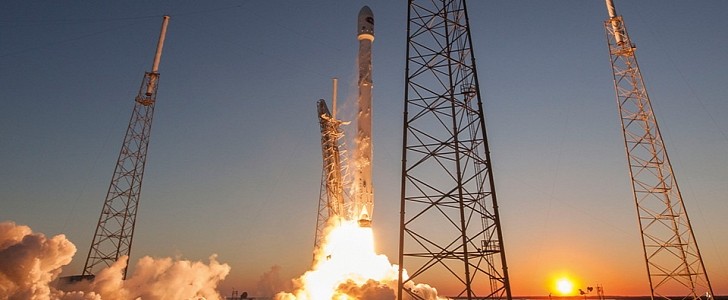Britain is committed to expanding both its space journey and climate protection role. And what better proof than launching next-generation satellites that have the ability to monitor and support the environment?
Britain is moving forward fast on the way to becoming one of the top players in space research and technology. After kick-starting the development of its first spaceports for rocket launches, and recently opening a state-of-the-art National Space Propulsion Test Facility, it’s now proud to have 3 of its most innovative satellites be sent to space.
The European Space Agency’s Pioneer Partnership Program has allowed smaller companies to be able to join the space industry and bring their innovative projects. Through this program, the UK Space Agency has provided local companies with funds for developing a trio of satellites which are set to be launched from NASA’s Kennedy Space Center in Florida.
The first innovation is represented by the Lacuna Space sensors. Small enough to fit in the palm of your hand, and able to function for years on a single battery charge, these cost-effective sensors can not only track wildlife, but even support farmers, by providing data related to the health of crops and cattle.
The second innovation is meant to access and send large amounts of information, from space to Earth. Glasgow-based Spire developed optical intersatellite links (ISL), which basically turn satellite constellations into integrated networks that can send more data than ever before. And they can send it even to remote areas and disaster areas.
Two of the satellites in the trio are the ones developed by Spire, while the third one, built by In-Space Missions, will carry the payload for Lacuna Space. In fact, it will act as a “space taxi”, delivering payloads from 5 other customers as well, including Airbus. All of these innovations are helping connect remote areas in the world to unprecedented levels, while monitoring the environment in detail.
The UK-built satellites were set to launch on the SpaceX Falcon 9 rocket on June 25, but the launch was postponed, with no further details on the new launch date so far.
The European Space Agency’s Pioneer Partnership Program has allowed smaller companies to be able to join the space industry and bring their innovative projects. Through this program, the UK Space Agency has provided local companies with funds for developing a trio of satellites which are set to be launched from NASA’s Kennedy Space Center in Florida.
The first innovation is represented by the Lacuna Space sensors. Small enough to fit in the palm of your hand, and able to function for years on a single battery charge, these cost-effective sensors can not only track wildlife, but even support farmers, by providing data related to the health of crops and cattle.
The second innovation is meant to access and send large amounts of information, from space to Earth. Glasgow-based Spire developed optical intersatellite links (ISL), which basically turn satellite constellations into integrated networks that can send more data than ever before. And they can send it even to remote areas and disaster areas.
Two of the satellites in the trio are the ones developed by Spire, while the third one, built by In-Space Missions, will carry the payload for Lacuna Space. In fact, it will act as a “space taxi”, delivering payloads from 5 other customers as well, including Airbus. All of these innovations are helping connect remote areas in the world to unprecedented levels, while monitoring the environment in detail.
The UK-built satellites were set to launch on the SpaceX Falcon 9 rocket on June 25, but the launch was postponed, with no further details on the new launch date so far.






